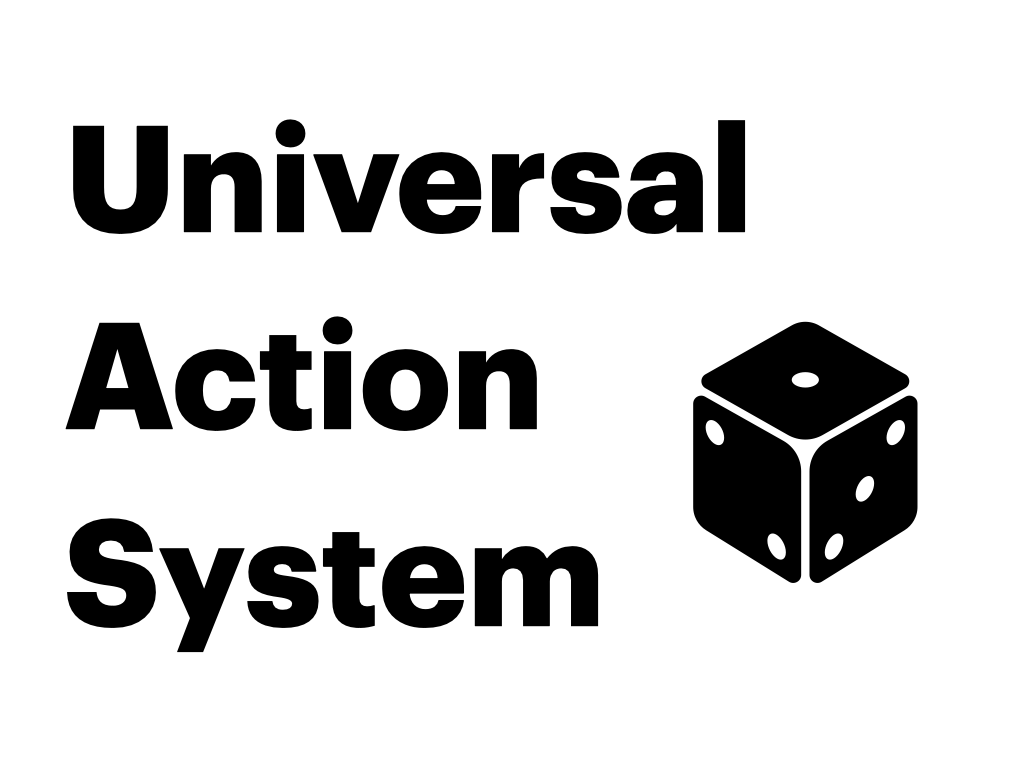The Dice & The Difficulty
Early in the design process, I explored multiple possible dice resolution mechanics before landing on the current (v1.4) ruleset that I like to call the RISK! Method. Detailed below are the main dice rolls I seriously considered.
In addition to the dice options, I've included an early exploration of Advantage and Difficulty and how the game might have used those terms and concepts in a practical way to augment the dice rolls. This exercise heavily influenced the final design of the game's rules.
I wanted to share these early development notes as a sort of retroactive dev log to revisit for myself what I was thinking back when I originally began work on this game years ago as well as to present everything that developed into what the game is currently and what was lost in the final version so that someone might see what could have been and maybe even help make the game better by revisiting some of these overlooked mechanics themselves.
I'm sharing these old notes as-is with very little editing if any of it seems rough around the edges. For example, I'm not sure what I meant by "Probability Does Not Work" in reference to Dice Pool 2.
Potential Resolution Dice
Dice Pool 1, Sums
D6 dice pools with two sets of different colored D6s. you add 1D6 per advantage to the action and 1D6 per disadvantage to the action and if the advantages add up higher than the disadvantages you succeed.
Dice Pool 2, Successes --- Most likely Probability Does Not Work
Same as before but instead of sums you count Success as 3s, 4s, 5s. So Advantage Dice 345 could be called a Success and a Disadvantage Dice 345 could be called Failures and as long as you get at least equal Success and Failures you succeed that way even if you roll 3 of each dice your odds will always be slightly better than 50/50
Critical Success - All Successes, no Failures. Critical Fail - All Failures, No Successes.
Dice Pool 3, Steal from Burning Wheel
Disadvantages add up to determine the difficulty target or Obstacle (in Burning Wheel Parlance) Advantages add dice to the pool. 4,5,6s are successes. Meet or exceed the obstacle with your number of successes to succeed.
Dice Pool 4, RISK!
So in Risk, attackers can roll up to 3d6 and defenders 2d6, you pair off the results from highest to lowest with ties going to the defender. SO -- Perhaps advantages add a d6, Disadvantages add a d6 you roll and pair off dice, with each pair that the player’s die is higher is a success. And maybe you have at least as many successes as failures… that way if it’s an odd number of one or the other it balances out.
D20, Modifiers
Using a D20, the DC is always 10 or 12 or an arbitrary base, Add modifiers to the roll for each advantage, and add difficulty to the DC for each disadvantage.
Codifying Advantages and Difficulty
Looking back on U.A.S.
Let's start with Difficulty, more easily observable and streamlined. *A Note: Advantages and Difficulty are stand-in terms for undefined units that will have to be determined when building a Dice or other Resolution system around this. Ideally, for any given Action you should be able to reasonably have More Advantages than Difficulty utilizing the different ways to add Advantages.
Increasing Difficulty
I imagine the base difficulty covers the first “tier” of each action part, I.E. 1 damage, 1 target, near you, etc. It would seem likely that each part has a potential for up to 2 additional difficulties.
- Action: add 1 difficulty for each additional Wound you Heal or Harm, locks you’re picking, things you’re carrying ( I think just some blind playtest would develop more circumstances to add difficulty here )
- Target: add 1 difficulty for each additional target or size of an area effect (which might need some way to quantify it). Line of sight?
- Range: Reference literal distance as well as emotional distance. Add 1 difficulty for each “band of distance” Near, Far, Gone. Near being within reach, Far being someone you could run up to, Gone being someone you couldn’t run up to. Could also be how familiar you are. Very Close Friend, Acquaintance, You know nothing about this person.
- Flavor: Any other external circumstance that would warrant difficulty.
Adding Advantages
Advantages often will have to be argued by players. I think you can reasonably argue for one advantage per part of an action to be granted or denied by the GM.
- Action Signature Action?
- Target Willing Targets?
- Range Within your Range?
- Flavor Beneficial Circumstances, Words of Power
Additionally Magic Items, Effects from past actions, Spending Willpower or Experience, Straining, etc.
Get The Universal Action System
The Universal Action System
A Classless & Level-less d6 dice pool system for any ttrpg genre.
| Status | In development |
| Category | Physical game |
| Author | MrMattDollar |
| Genre | Adventure |
| Tags | Cyberpunk, Dice, Fantasy, rules-lite, Sci-fi, Tabletop role-playing game, zine |
More posts
- Custom Dice Roller!Nov 26, 2023
- Helpful ActionsNov 26, 2023
- The Character SheetNov 07, 2023
- The Original DraftNov 07, 2023

Leave a comment
Log in with itch.io to leave a comment.